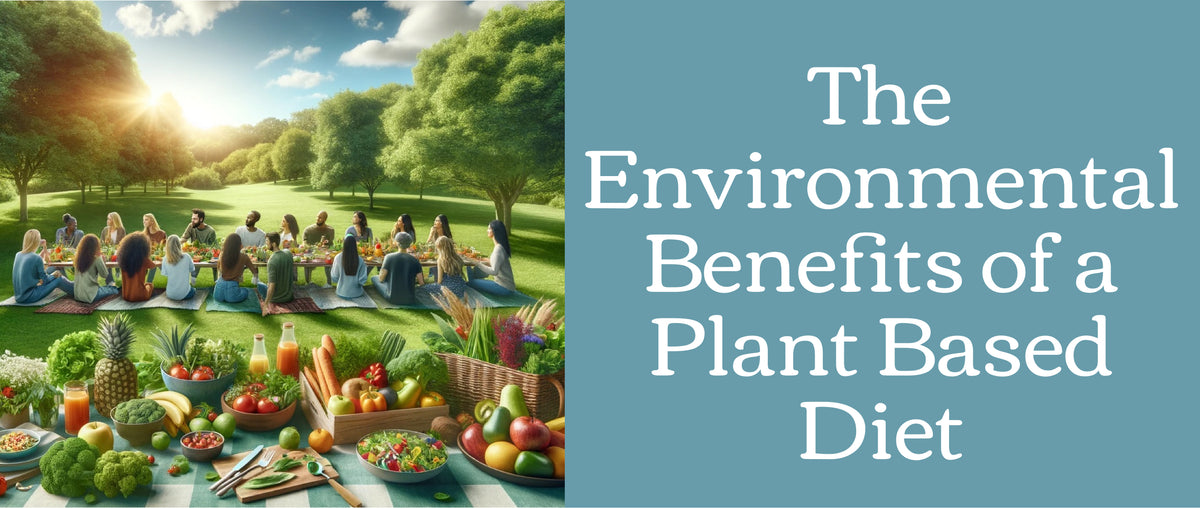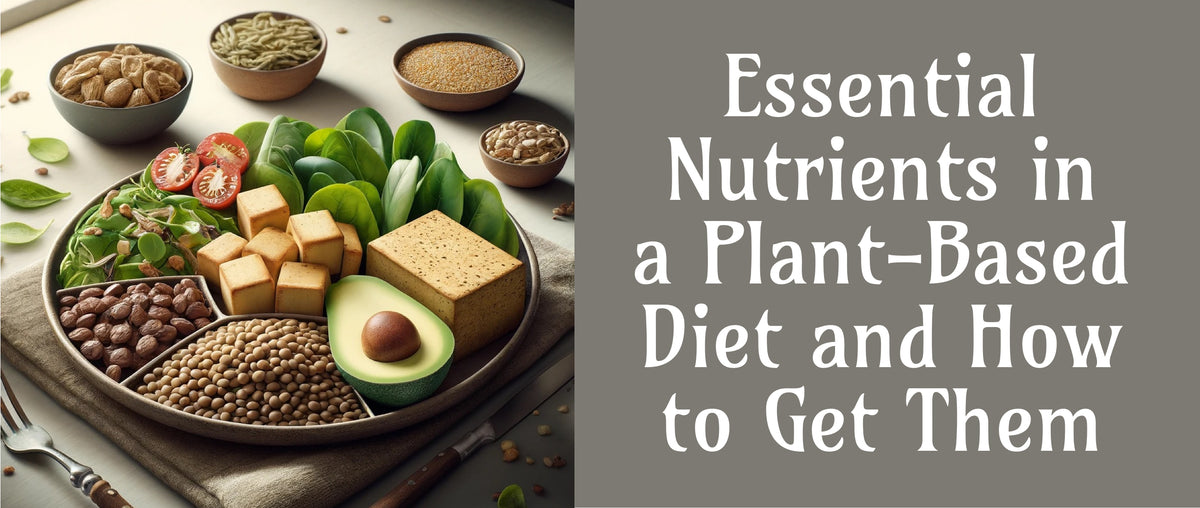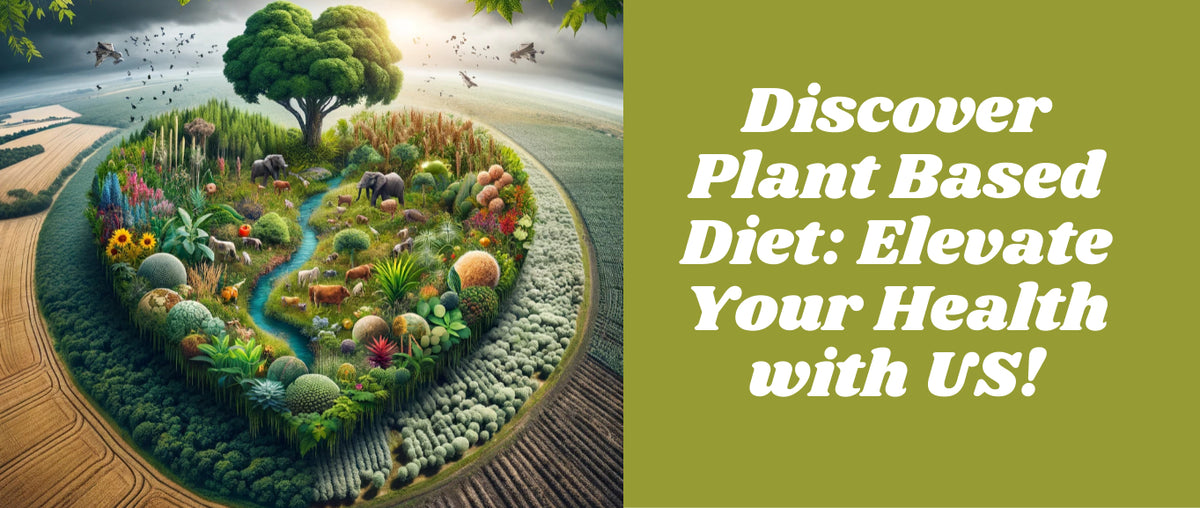The Environmental Benefits of a Plant Based Diet
As the world becomes increasingly aware of the impact of human activities on the environment, more people are turning to plant based diet. Not only is a Plant based diet beneficial for personal health, but it also offers numerous advantages for the environment. This article will explore the various environmental benefits of adopting a Plant based diet, providing you with compelling reasons to consider this lifestyle change.
Key Takeaways
- Plant based diets significantly reduce greenhouse gas emissions.
- Transitioning to a plant based diet helps conserve water and reduces land use.
- Plant based diets support biodiversity and reduce deforestation.
- Sustainable agriculture practices are promoted through Plant based diets.
- Adopting a Plant based diet contributes to improved public health and animal welfare.
What Is a Plant based Diet?
A Plant based diet primarily focuses on foods derived from plants, including fruits, vegetables, nuts, seeds, oils, whole grains, legumes, and beans. This type of diet does not necessarily mean you must be vegetarian or vegan and completely avoid meat or dairy. Instead, it emphasizes proportionately choosing more foods from plant sources.
Plant based diets vary from strictly vegan diet, which exclude all animal products, to more flexible approaches that allow occasional consumption of meat or dairy. The key is prioritizing plant based foods, which offer a rich array of nutrients essential for maintaining good health.

Health Benefits of Plant based Diets
Adopting a Plant based diet comes with numerous health benefits that can enhance overall well-being and reduce the risk of many chronic diseases. Research has shown that individuals following Plant based diets tend to have lower body mass indexes (BMIs), reduced cholesterol levels, and lower blood pressure compared to those consuming a diet high in animal products.
Reduced Risk of Chronic Diseases
One of the most significant health benefits of a Plant based diet is the reduced risk of chronic diseases. Diets rich in fruits, vegetables, whole grains, and legumes provide essential nutrients and antioxidants that support heart health and reduce the risk of cardiovascular diseases. Studies have demonstrated that Plant based diets are associated with lower incidences of heart disease, high blood pressure, and stroke.
Furthermore, a Plant based diet can help in managing and preventing diabetes. The high fiber content in plant foods aids in maintaining stable blood sugar levels, reducing the risk of type 2 diabetes. Additionally, consuming a variety of colorful fruits and vegetables supplies the body with antioxidants and phytochemicals that can lower the risk of certain cancers.
Improved Weight Management
A Plant based diet can be an effective strategy for weight management. Foods such as leafy greens, whole grains, and legumes are typically lower in calories and higher in fiber, promoting satiety and reducing overall calorie intake. This makes it easier to achieve and maintain a healthy weight. For those needing to gain weight healthily, incorporating calorie-dense plant foods like nuts, seeds, and avocados into their diet can be beneficial.
Additional Benefits of a Plant based Diet
Enhanced Digestive Health
Digestive health is another area where a Plant based diet excels. The high fiber content in fruits, vegetables, and whole grains promotes healthy digestion and prevents constipation and other digestive issues. Additionally, fermented plant based products such as Kombucha introduce beneficial bacteria to the gut, enhancing overall digestive health.
Better Muscle Recovery
For individuals engaged in physical activities or sports, a Plant based diet can support Muscle Recovery. Plant based protein sources like beans, lentils, tofu, and Vegan Cheese provide the necessary protein for muscle repair and growth. The abundance of antioxidants in plant foods also helps reduce inflammation and muscle soreness after exercise.
Healthier Snacks and Meals
A Plant based diet offers a wide variety of healthy snack options that can benefit both adults and children. Healthy snacks for kids like fruit slices, veggie sticks with hummus, and whole grain crackers are nutritious and delicious. For those looking for high protein snacks, options like roasted chickpeas, mixed nuts, and protein bars made from nuts and seeds are excellent choices. Incorporating low calorie food such as leafy greens, berries, and other vegetables can help manage weight effectively while providing essential nutrients.
Environmental Impact of Plant based Diets
A significant advantage of a plant-based diet is its positive impact on the environment. The production of plant-based foods generally requires fewer resources compared to animal-based foods, leading to a range of environmental benefits.
Reduction in Greenhouse Gas Emissions
One of the most critical environmental benefits of a Plant based diet is the reduction in greenhouse gas emissions. Livestock farming is a significant contributor to methane and nitrous oxide emissions, which are potent greenhouse gases. According to the United Nations Food and Agriculture Organization (FAO), livestock accounts for approximately 14.5% of global greenhouse gas emissions.
In contrast, Plant based diets produce significantly lower emissions. By reducing or eliminating meat consumption, individuals can substantially decrease their carbon footprint. For example, producing one kilogram of beef generates about 60 kilograms of greenhouse gas emissions, whereas producing one kilogram of lentils generates less than one kilogram of emissions.
Water Conservation
Water usage in agriculture is another area where Plant based diets show clear environmental benefits. Animal agriculture is highly water-intensive, requiring vast amounts of water for drinking, cleaning, and growing feed crops. For instance, producing one kilogram of beef can require up to 15,000 liters of water.
On the other hand, Plant based foods generally require much less water. Producing one kilogram of vegetables typically requires around 300 liters of water. By choosing Plant based foods, we can significantly reduce water consumption and help preserve this precious resource.
Also Read
Decrease in Land Use and Deforestation
Animal agriculture also demands extensive land use, contributing to deforestation and habitat loss. Large areas of forests are cleared to create pasturelands and grow feed crops, leading to a loss of biodiversity and disruption of ecosystems.
Plant based diets require considerably less land. Growing crops for direct human consumption is much more land-efficient than raising livestock. For example, one hectare of land can produce significantly more Plant based protein sources like soybeans and lentils compared to beef or pork. By adopting a Plant based diet, we can reduce the pressure on land resources and help protect forests and wildlife habitats.
Biodiversity Preservation
Preserving biodiversity is crucial for maintaining healthy ecosystems. The expansion of animal agriculture often leads to habitat destruction and species extinction. By reducing meat consumption and favoring Plant based diets, we can mitigate these negative impacts and promote biodiversity.
Plant based diets support a more diverse range of crops and sustainable farming practices, which are beneficial for ecosystems. Diverse agricultural systems can enhance soil health, improve pollination, and support various wildlife species. By making more sustainable food choices, we contribute to the preservation of our planet's biodiversity.
Energy Consumption
The energy required to produce animal-based foods is significantly higher than that for plant-based foods. Animal agriculture involves multiple stages, including growing feed crops, transporting feed, raising animals, and processing meat, all of which are energy-intensive.
In contrast, producing plant-based foods typically involves fewer stages and less energy. For example, growing and harvesting crops like fruits, vegetables, and grains consume less energy compared to the entire process of meat production. By choosing a plant-based diet, we can reduce our energy consumption and contribute to a more sustainable food system.
Public Health Benefits
While the environmental benefits of a plant-based diet are substantial, it is also essential to highlight its public health advantages. A diet rich in plant-based foods can improve overall health and reduce the burden of chronic diseases on healthcare systems.
Health Co-benefits
Plant-based diets are associated with numerous health benefits, including lower risks of heart disease, diabetes, and certain cancers. High in fiber, vitamins, and antioxidants, plant-based foods support a healthy immune system and reduce inflammation.
Moreover, a plant-based diet can contribute to healthier body weight and better weight management. Foods such as fruits, vegetables, whole grains, and legumes are nutrient-dense and low in calories, making them excellent choices for maintaining a healthy weight. For those seeking to lose weight, incorporating the best foods for weight loss like leafy greens, berries, and legumes can be particularly effective.
Ethical Considerations
Adopting a Plant based diet also aligns with ethical considerations regarding animal welfare. Reducing or eliminating animal products from our diet can help combat the negative impacts of factory farming, which often involves inhumane treatment of animals.
By choosing Plant based foods, individuals can make a stand against animal cruelty and promote more humane farming practices. This ethical perspective is an essential aspect of the growing movement towards Plant based diets.
Affordability of Plant based Diets
A common misconception is that Plant based diets are expensive. However, with careful planning, they can be both affordable and nutritious. Staples like beans, lentils, rice, and seasonal vegetables are often cheaper than meat and dairy products. Additionally, buying in bulk and cooking at home can further reduce costs.

Transitioning to a Plant based Diet Gradually
Transitioning to a Plant based diet doesn't have to happen overnight. Gradual changes can make the shift more manageable and sustainable. Here are some tips for making the transition:
- Start Small: Begin by incorporating more Plant based meals into your diet, such as Healthy Snacks for Kids and High Protein Vegan Breakfast like nuts and seeds.
- Experiment with Recipes: Try new Plant based recipes to find meals you enjoy.
- Make Simple Swaps: Replace animal products with Plant based alternatives, such as using vegan cheese instead of dairy cheese.
- Stay Informed: Learn about the nutritional aspects of a Plant based diet to ensure you're meeting your dietary needs.
Supporting Local Economies
Choosing locally produced Plant based foods supports local farmers and economies. This not only promotes sustainability but also helps build stronger communities. By purchasing from local markets and farms, consumers can reduce the carbon footprint associated with long-distance food transportation.
Conclusion
In conclusion, a Plant based diet offers numerous environmental benefits, including reducing greenhouse gas emissions, conserving water, decreasing land use, and preserving biodiversity. Additionally, it supports public health and aligns with ethical considerations regarding animal welfare. By transitioning to a Plant based diet, whether gradually or more rapidly, individuals can contribute to a more sustainable and compassionate world.
Do you enjoy vegan food? We have a list of vegan restaurants in India to help you find delicious options in your area!










